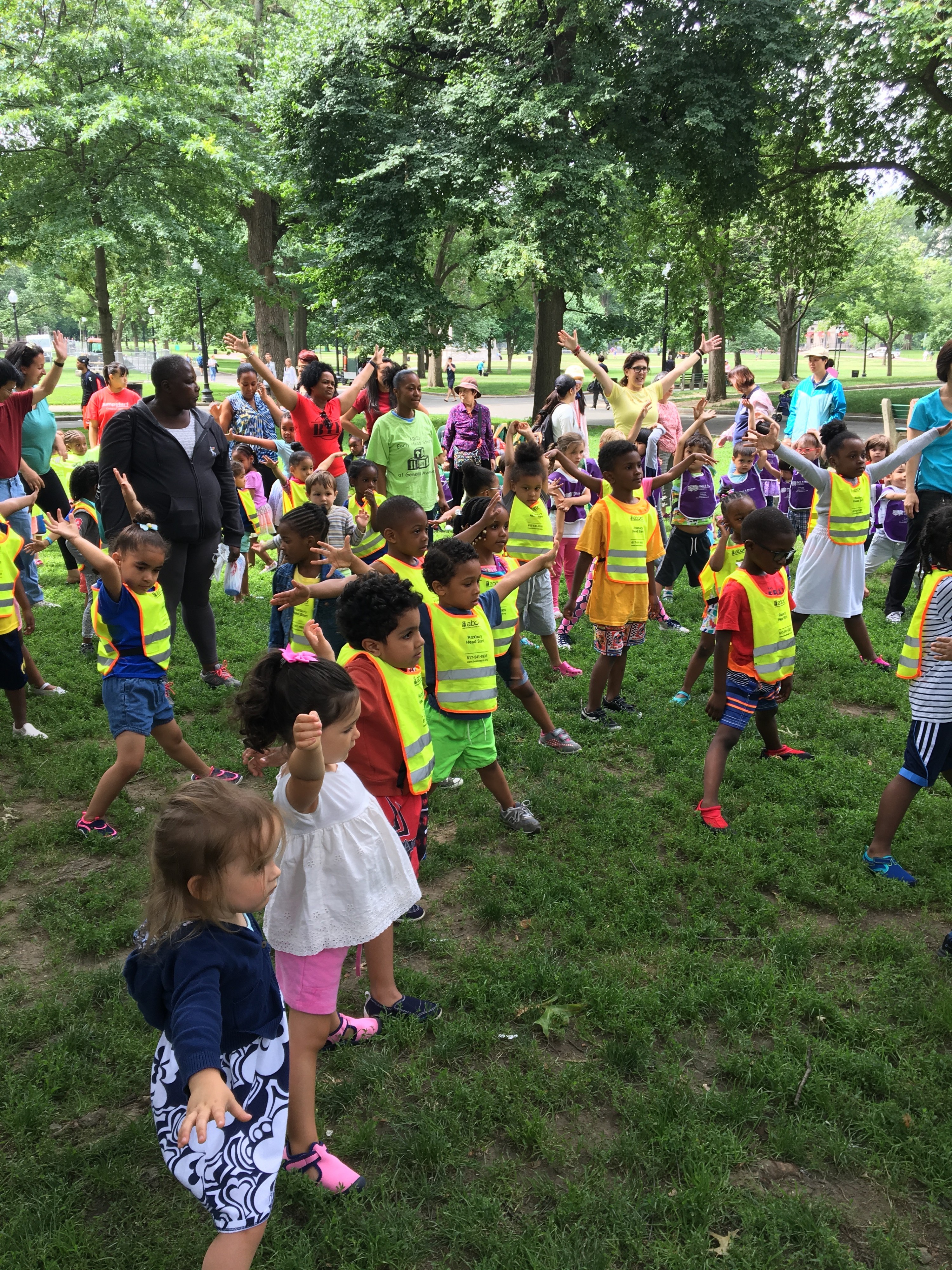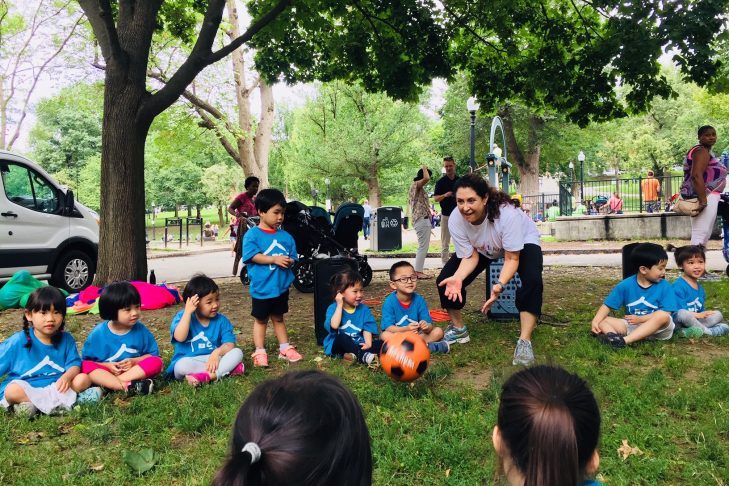Former travel journalist Robyn Parets was riding a riverboat on assignment in China when she became sick. She was only 31 years old, with two young children, and she couldn’t get out of bed halfway across the world. Somehow, she says, she was flown back to the United States. She spent three weeks at Beth Israel Deaconess Medical Center. Doctors wondered if her travel vaccines caused her symptoms; they weren’t sure if she had a degenerative neurological condition. Ultimately, she was diagnosed with postural orthostatic tachycardia syndrome (POTS), which causes breathing problems and a rapid heartbeat when patients go from standing to sitting.
“It was a slow recovery. My system was haywire. My heart rate went haywire when I stood up. I couldn’t drive or work,” she says.
Parets used the illness as a chance to slow down. She stopped writing and began practicing yoga, training to learn how she could help to regulate her breath.
Ultimately, she became a teacher and ran a studio out of a converted carriage house on her property in Sharon. Breathe Joy Yoga was the only studio in town for many years, and it included kids’ classes. And thus, Pretzel Kids Yoga was born, developed in collaboration with two school teachers (and yogis) who offered input on how to keep kids engaged.

(Courtesy Robyn Parets)
Pretzel Kids is now at YMCAs, camps and schools (including Camp Yavneh) throughout the Boston area; on June 27, they’ll lead an al fresco class from 10 a.m. until 12 p.m. at Boston’s Frog Pond in conjunction with the Highland Street Foundation. Parets now oversees 100 teachers throughout the state who learn her specialized curriculum tailored to squirmy kids and tweens; come July, parents will be able to scour the site to find Pretzel-certified teachers to hire for birthday parties, workshops and special events, as well as locate a la carte classes. The motto? “Spreading Joy from Head to Toes, It All Begins in Pretzel Pose.”
The half-hour to hourlong classes are “very structured,” says Parets, much like a plug-and-play classroom curriculum. Warm-ups are play-and game-based; then, students move to breathing and relaxation. Kids learn poses based on animals and play games like charades that increase mindfulness. It’s a welcome break from kids’ digital-centric, often fast-paced, typically exhausting daily lives, she says.
“Kids develop better focus, gain acceptance for themselves and others and learn to be comfortable in their own skin. It’s not a competitive sport or a performance. They have time to breathe and practice strength, balance, flexibility and work on improving within themselves. They learn how to relax and let go,” Parets says.
Sounds like something adults might like, too. Learn more here.



